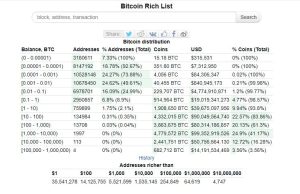What are Crypto Whales? Can They Manipulate Crypto Markets?
What are Crypto Whales? Can They Manipulate Crypto Markets?
The following content includes the personal opinion of the author, and is subject to market conditions. Always do your research before investing in anything, cryptocurrency or not. The author and publication are NOT responsible if you experience a financial loss.
Crypto traders, especially those newer to the game, should understand the role whales play in affecting cryptocurrency values.
In cryptocurrency, “whales” are people or groups who own massive amounts of a digital coin.
Whales usually own more than 10% of the total crypto supply. For example, MicroStrategy owns nearly 130,000 bitcoins (BTC) and can move the price of BTC through their market participation. With their buying/selling power, they can easily influence the price of respective crypto tokens and disrupt whole markets.
Investment firms like Pantera Capital, Fortress Investment Group, and Falcon Global Capital are called “whales” in the cryptocurrency market. If these companies buy a crypto token in bulk, then the price of that token will go up. On the other hand, if they dump a token, its price would drop significantly.

Unlike most people, crypto whales don’t trade on regular cryptocurrency exchanges because their high number of orders would overpower the existing ones automatically placed on the books. Instead, theyASD trad coins not recorded in accordance with standard procedures , a practise known as Over-the-Counter (OTC) trading.
On blockchains that use Proof-of-Stake (PoS), whales–individuals holding large amounts of the total cryptocurrency–have a lot of power in governance procedures (since they have more money at stake, their vote carries more weight). Some people see this as a good sign for stability because these wealthy investors have an interest in keeping the network strong. However, others worry that having such rich individuals control most of the currency could lead to centralization of power.
Cryptocurrencies were designed to promote anonymity, therefore it is more complicated than usual to figure out which accounts belong to specific people or organizations. This makes it tough to find applicable information such as who the whale is, where they reside, what their profession is, etc. conducted in order primarily determine their motivation for making said transaction.
However, those with public addresses can be identified by inspecting blockchain data. In reality, some of these individuals are well-known Bitcoin whales.
Given the importance of retail crypto investors being aware of large wallet changes, it is crucial they monitor these wallets and tailor their trading strategy as needed.



